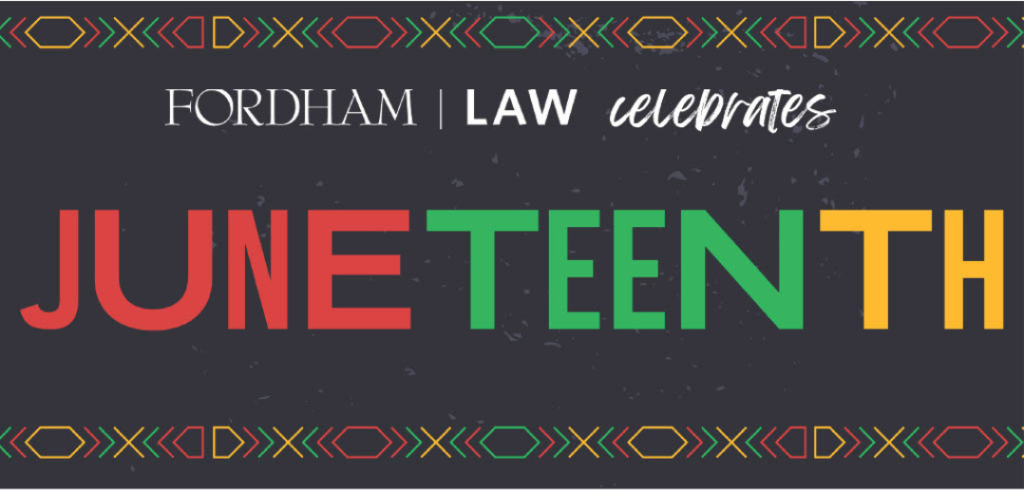A Message from Dean Matthew Diller
June 17, 2022
Dear Fordham Law Community,
- Professor Atinuke Adediran has four recent articles that look at how inequalities are built into the organizational structures of corporations and nonprofits. One of these articles, published in the Fordham Law Review, examines how these inequalities manifest in the composition of leadership in the public interest law sector.
- Professor Tanya K. Hernández’s upcoming book Racial Innocence: Unmasking Latino Anti-Black Bias and the Struggle for Equality (published by Beacon Press and now available for preorder) examines how marginalized groups can not only experience discrimination and bias, but also be discriminatory themselves and perpetuate racist power structures. Professor Hernández, the associate director and head of global and comparative law programs and initiatives for our Center on Race, Law and Justice, recently spoke with the Boston Globe about the history of Latino involvement in white supremacist groups.
- Professor Kimani Paul-Emile, a leading scholar on issues of healthcare and race and associate director and head of domestic programs and initiatives of the Center on Race, Law and Justice, took a break from writing her highly anticipated book to receive an honorary degree from Drew University last month. In her address to the graduates, she challenged them to use their degrees to “play a crucial role in this nation’s social, political, and economic struggles” and “influence the debates [to]determine what type of America this will become.”
- Having coined the term “Color of COVID” and written on the racial justice paradox baked into our pandemic economy, Professor Catherine Powell‘s current research proposes a framework for the ongoing COVID crisis based upon ethics and “law of care,” as opposed to the “war on COVID” framing that turns on security, militarism, and policing. Rather than an emergency powers approach to the ongoing pandemic—which can lead to presidential overreach—she suggests a paradigm based on human security. Professor Powell also hosted Nikole Hannah-Jones for the inaugural Eunice Carter Lecture.
- Professor Bennett Capers, the faculty director of the Center on Race, Law and Justice, published Critical Race Judgments: Rewritten U.S. Opinions on Race and the Law, in which numerous critical race theory scholars rewrite seminal court opinions through a critical race theory lens. The book was recently featured in Fordham Law News.
For students who are interested in further study of race and law, there are a wide variety of opportunities available to do so through the Law School. Some of the courses we are offering in the upcoming fall semester include Feminism, Race, and the Law; Race, Gender and Crime; Slavery and the Constitution; and Race Law and the Public Intellectual.
In addition, we are preparing to launch a new clinic on issues of race around the world. Created in partnership between the Center on Race, Law and Justice and the Leitner Center on International Law and Justice, the clinic will work with international bodies and grassroots organizations to help create systems of international accountability to complement our domestic efforts to dismantle systemic racism. The clinic will be directed by Professor Paolo Galizzi and it will feature a number of co-teachers, including Professor Gay McDougall.
There is so much to learn about the history of race in our country and how we can best work toward ensuring equality for all. I am glad to be part of an intellectual community actively encouraging this conversation and supporting each other in the vital work that emerges from it.
Dean Matthew Diller

